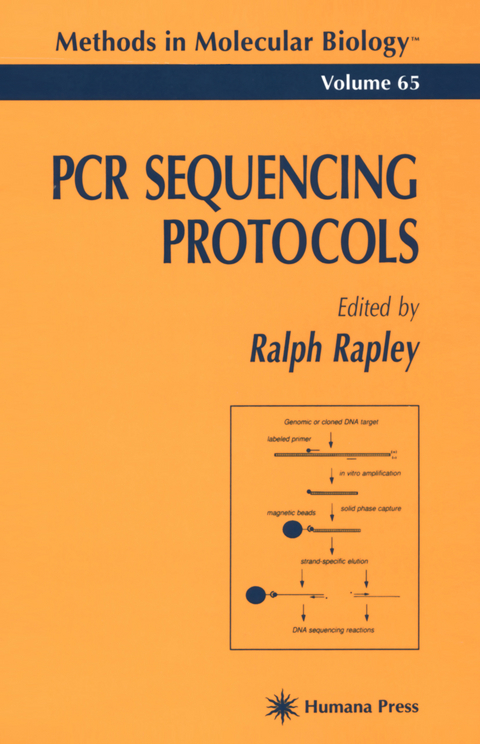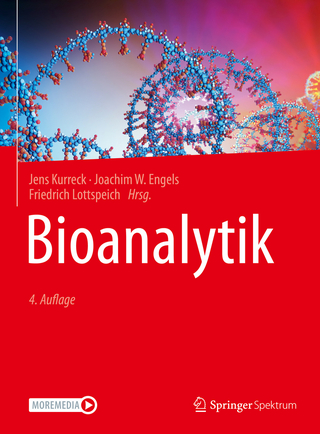
PCR Sequencing Protocols
Humana Press Inc. (Verlag)
978-1-4899-4038-4 (ISBN)
Preparation and Analysis of DNA Sequencing Gels.- Purification of PCR Products from Agarose Gels for Direct Sequencing.- Enzymatic Fluorescence and Biotin Labeling of Primers for PCR Sequencing.- Direct Sequencing of Double-Stranded PCR Products with the Sequenase Kit and [?-35 S] dATP.- Direct Sequencing by Thermal Asymmetric PCR.- Rapid Sequencing of cDNA Clones Direct Sequencing Using Sequential Linear/Asymmetric PCR.- Direct Sequencing of PCR Products Using Chemiluminescent Detection.- Direct DNA Sequencing of PCR Products Using Magnetic Beads.- Affinity Capture and Solid-Phase Sequencing of Biotinylated PCR Products.- Analysis of Nucleotide Sequence Variations by Solid-Phase Minisequencing.- Nonradioactive PCR Sequencing Using Digoxigenin.- Silver Sequencing™.- Direct Sequencing of PCR Products with DNA-Binding Proteins.- PCR Sequencing with the Aid of Detergents.- Direct Sequencing with Highly Degenerate and lnosine-Containing Primers.- Determination of Unknown Genomic Sequences Without Cloning.- DNA Sequencing by the Chemical Method.- Direct PCR Sequencing with Denaturants (Formamide).- Efficient PCR Production of Single-Stranded DNA Sequencing Templates.- Preparation and Direct Automated Cycle Sequencing of PCR Products.- Solid-Phase Automated Sequencing of PCR-Amplified Genomic DNA.- Cloning PCR Products for Sequencing in M13 Vectors.- Sequencing PCR Products Cloned into M13 Vectors.- Genomic Amplification with Transcript Sequencing (GAWTS).- DNA Rescue by the Vectorette Method.- Sequencing of (dA:dT) Cloned Mixed PCR Products from Microbial Populations.
| Reihe/Serie | Methods in Molecular Biology ; 65 |
|---|---|
| Zusatzinfo | 24 Illustrations, black and white; XI, 221 p. 24 illus. |
| Verlagsort | Totowa, NJ |
| Sprache | englisch |
| Maße | 152 x 229 mm |
| Themenwelt | Naturwissenschaften ► Biologie ► Mikrobiologie / Immunologie |
| Naturwissenschaften ► Biologie ► Zellbiologie | |
| ISBN-10 | 1-4899-4038-3 / 1489940383 |
| ISBN-13 | 978-1-4899-4038-4 / 9781489940384 |
| Zustand | Neuware |
| Haben Sie eine Frage zum Produkt? |
aus dem Bereich


